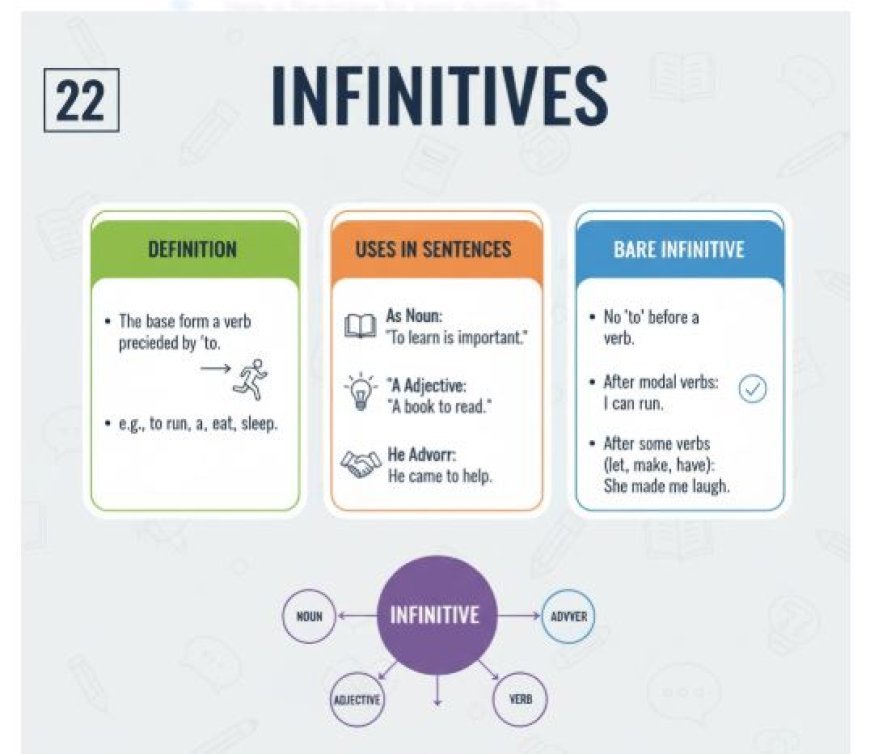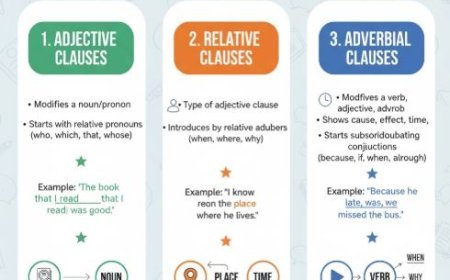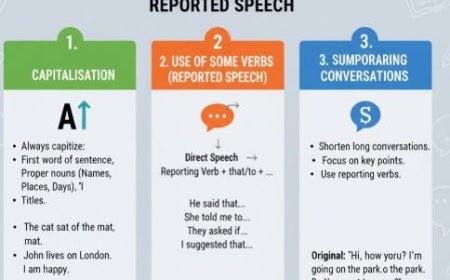INFINITIVES
Infinitives in English are verb forms acting like nouns (to sing), adjectives (wanting to win), or adverbs (ran to hide) - all with the "to" (usually) and a dream to do stuff.

Infinitives are an essential part of the English language, yet they can often be confusing for non-native speakers. In this blog post, we will explore what infinitives are, how they are used in English grammar, and provide examples to help you better understand this concept.
Infinitives
Infinitives are the root form of a verb, generally followed by the word 'to'. They are typically regarded as the 'pure' form of a verb, as they are not modified by tense, person, or number. Infinitives may function as nouns, adjectives, or adverbs in a sentence.
Infinitives
- To + verb form: As mentioned earlier, infinitives are formed by placing the word 'to' before a verb. For example, 'to walk', 'to eat', 'to read', etc.
- Functions as a noun: In some cases, infinitives can function as a noun in a sentence. For instance, 'To travel is my passion.' In this sentence, 'to travel' is the subject of the sentence, acting as a noun.
- Functions as an adjective: Infinitives can also be used as adjectives to describe a noun. For example, 'She has a lot of work to do.' In this sentence, 'to do' refers to the noun 'work'.
- Functions as an adverb: Infinitives can also function as adverbs to modify a verb, adjective, or another adverb. For example, 'She is working hard to pass the test.' In this sentence, 'to pass' modifies the verb 'working' and shows the purpose of the action.
- Passive Infinitive: In some cases, the word 'to' is omitted from the infinitive form, and the verb is used in its past participle form. This is known as a passive infinitive. For example, 'The car needs to be washed.' In this sentence, 'to be washed' is a passive infinitive, and it shows that the car needs an action to be done on it.
Example Sentences
- I want to travel the world. (Infinitive as a noun)
- She has a lot of books to read. (infinitive as an adjective)
- He speaks softly to avoid waking the baby. (infinitive as an adverb)
- She is excited to start her new job. (infinitive as an adjective)
- Throughout the test, students were instructed to be silent. (Passive Infinitive)
Common Mistakes to Avoid
- Using "to" after modal verbs: The base form of the verb, not the infinitive form, comes after modal verbs like can, could, should, would, etc. For example, 'He can swim' (not 'He can swim')
- Using 'to' after 'let': The verb 'let' is followed by the base form of the verb, without the word 'to'. For example, 'Let me help you' (not 'Let me help you')
- Using 'to' after 'help': The verb 'help' can be followed by either the base form or the infinitive form of the verb. For example, 'She helped me study' or 'She helped me to study.'
What's Your Reaction?



































